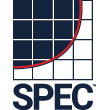|
DesignReview Viewset (drv-09)

DesignReview is a 3D computer model review package specifically
tailored for plant design models consisting of piping, equipment
and structural elements such as I-beams, HVAC ducting, and electrical
raceways. It allows flexible viewing and manipulation of the model
for helping the design team visually track progress, identify
interferences, locate components, and facilitate project approvals
by presenting clear presentations that technical and non-technical
audiences can understand.
On the construction site, DesignReview can display construction
status and sequencing through vivid graphics that complement blueprints.
After construction is complete, DesignReview continues as a valuable
tool for planning retrofits and maintenance. DesignReview is a
multi-threaded application that is available for both UNIX and
Windows NT.
The model in this viewset is a subset of the 3D plant model made
for the GYDA offshore oil production platform located in the North
Sea on the southwest coast of Norway. A special thanks goes to
British Petroleum, which has given the SPECopcSM subcommittee
permission to use the geometric data as sample data for this viewset.
Use of this data is restricted to this viewset.
DesignReview works from a memory-resident representation of the
model that is composed of high-order objects such as pipes, elbows
valves, and I-beams. During a plant walkthrough, each view is
rendered by transforming these high-order objects to triangle
strips or line strips. Tolerancing of each object is done dynamically
and only triangles that are front facing are generated. This is
apparent in the viewset model as it is rotated.
Most DesignReview models are greater than 50 megabytes and are
stored as high-order objects. For this reason and for the benefit
of dynamic tolerancing and face culling, display lists are not
used.
The updated drv-08 shaded model contains 367178 vertices in 42821
primitives. Vertex arrays are used to send the data to mirror
the current release of the Design Reivew application. The color
and material changes are taken directly from the GYDA model.
The wire frame model contains 1599755 vertices in 94275 primitives.
There are 5 tests specified by the viewset that represent the
most common operations performed by DesignReview. These tests
are as follows:
|
Test
|
Weight (%)
|
Description
|
|
1
|
75%
|
Walkthrough rendering of surfaces. Each object is rendered
as a triangle mesh, depth-buffered, smooth-shaded, with
one light and a different color per primitive. Material
properties are changed about once every 20 primitives.
|
|
2
|
13%
|
For more realism, objects in the model can be textured.
This test textures the model with linear blending and mipmaps.
There is a color change per primitive and the material properties
change as in test 1.
|
|
3
|
4%
|
As an additional way to help visual identification and
location of objects, the model may have "screen door" transparency
applied. This requires the addition of polygon stippling
to test #1 above.
|
|
4
|
4%
|
To easily spot rendered objects within a complex model,
the objects to be identified are rendered as solid and the
rest of the view is rendered as a wireframe (line strips).
The line strips are depth-buffered, flat-shaded and unlit.
Colors are sent per primitive.
|
|
5
|
4%
|
Two other views are present on the screen to help the user
select a model orientation. These views display the position
and orientation of the viewer. A wireframe, orthographic
projection of the model is used. Depth buffering is not
used, so multithreading cannot be used; this preserves draw
order.
|
|





